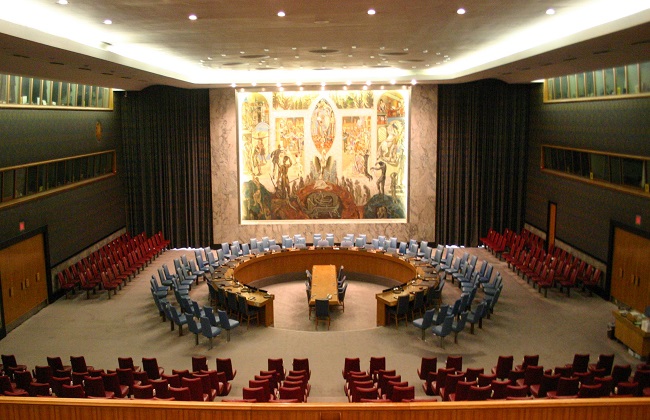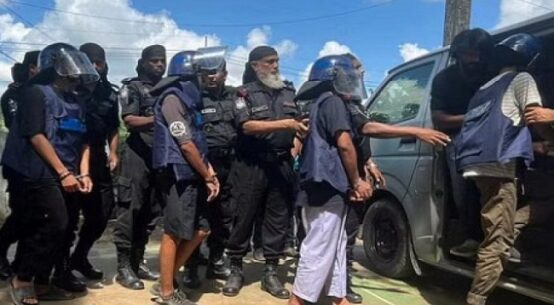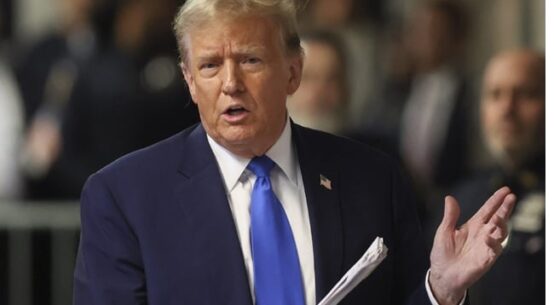
The myriads of proposals for the reform of the much-maligned Security Council have been kicked around the United Nations for more than two decades—with no significant progress.
Speaking at the General Assembly’s (GA) annual debate, GA President Dennis Francis told delegates last November that without structural reform, the Council’s performance and legitimacy will inevitably continue to suffer.
“Violence and war continue to spread in regions across the world, while the United Nations seems paralyzed due largely to the divisions in the Security Council,” he said.
With the world changing quickly, the Council is “dangerously falling short” of its mandate as the primary custodian for the maintenance of international peace and security, he said.
Meanwhile, a proposed new model for reforms, initiated by the Group of Four (G4: Brazil, Germany, India, and Japan), has been doing the rounds.
Not surprisingly, all four countries have been longstanding contenders for permanent seats (P5s) which have remained the privilege of five countries since the creation of the world body 79 years ago: the US, UK, France, China and the Russian Federation (replacing the USSR of a bygone era).
The G4 is calling for a total of 11 permanent members (P11): China, France, The Russian Federation, UK and the US, plus six others.
In the event of possible expansion, and upon the adoption of a comprehensive framework resolution on Security Council reform, interested Member States prepared to assume the functions and responsibilities of permanent members of the Security Council would submit their candidatures in writing to the President of the General Assembly.
The General Assembly will then proceed, as soon as possible, at a date to be determined by the President, to the election of six new permanent members, by a vote of two thirds of the members of the General Assembly. through a secret ballot. The rules of procedure of the General Assembly will be applied to the election of the new permanent members.
The criteria of Article 23 (1) should also apply to the election of the new permanent members: “due regard shall be paid, in the first instance to their contributions to the maintenance of international peace and security and to the other purposes of the Organization, and also to equitable geographical distribution”.
The non-permanent members with a two-year term, currently at 10, will be increased to a total of 14/15 seats – The election process for non-permanent members will follow current practices.
According to the G4 proposal, the six new permanent members of the Security Council shall be elected according to the following pattern: (i) Two from African Member States: (ii) Two from Asia-Pacific Member States, (iii) One from Latin American and Caribbean Member States; (iv) One from Western European and Other Member States.
The four/five new non-permanent members of the Security Council shall be elected according to the following pattern; (i) One/Two from African Member States: (ii) One from Asia-Pacific Member States: (iii) One from Eastern European Member States; (iv) One from Latin American and Caribbean Member States.
Member States should give due consideration during the nomination and election of non-permanent members to adequate and continuing representation of small and medium size Member States, including Small Island Developing States (SIDS).
Andreas Bummel, Executive Director, Democracy Without Borders, told IPS any reconfiguration of the Security Council would have to be adopted in line with Article 108 of the Charter, which means it requires the support of two thirds of UN members and the P5.
“Given the fact that Security Council reform has been discussed for decades, I think it is legitimate to pursue such a vote instead of consensus. Whether it is politically wise is a different question.”
In essence, he said, the G4 are not willing to compromise. “If they can mobilize a two thirds majority and the P5, fine. But if not, it’s finally game over for them. I can’t see how a broad agreement is possible without introducing new concepts that go beyond today’s permanent and non-permanent seats.”
Re-electable seats rotating among the membership of certain regions is a good approach, in my mind. New permanent seats vested with a veto will make the Security Council even more unworkable.
This option should be off the table. Delaying a decision for fifteen years does not solve this, he declared.
On the question of the veto, the G4 says Member States should be invited to continue discussions on the use of the veto in certain circumstances.
The new permanent members, would as a principle, have the same responsibilities and obligations as current permanent members.
However, the new permanent members shall not exercise the veto-right until a decision on the matter has been taken during a review, to be held fifteen years after the coming into force of the reform.
Amendments to the charter shall reflect the fact that the extension of the right of veto to the new permanent members will be decided upon in the framework of a review.
The enlarged Security Council would be encouraged to, inter alia, hold regular consultations with the President of the General Assembly; submit an analytical and comprehensive evaluation of the Council’s work in the annual report to the General Assembly; submit more frequently special reports to the General Assembly in accordance with Articles 15 (1) and 24 (3) of the Charter, improve participation of the Chair of the Peacebuilding Commission and the chairs of the country-specific configurations of the Commission in relevant debates and, in an appropriate format, in informal discussions
Asked for her comments, Barbara Adams, Senior Policy Analyst, Global Policy Forum, told IPS: Surely, now 11 (not 5) veto-wielding powers, will not correct the inability of P5 or P11 to put their chartered responsibility for international peace and security above their national security interests.
She pointed out that the G4 proposal for a 15-year pause on use of the veto acknowledges the tension between expanding the number of permanent members and the veto.
Re the proposal for seats for developing countries, and countries from other regions, they should not need to be justified by the concept of regional representation, she argued.
“The privilege of permanency in the Security Council extends beyond the use of veto. The “chill factor” of this privilege reaches into many parts of the UN system in ways formal and informal such as preferential treatment for senior UN positions,” Adams declared.
Joseph Chamie, a consulting international demographer and a former director of the UN Population Division, told IPS reform of the United Nations Security Council is not a new proposal; it’s been around for decades.
Despite committees, discussions and calls by many Member States for reform of the Council, he pointed out, little progress has been achieved towards equitable representation, inclusiveness and legitimacy.
“Increasing numbers of both governments and people consider the Council to be ineffectual and unjust and require reform, including expanding membership and restricting vetoes”.
While enormous changes have occurred in the world over the past eight decades, he said, the Council continues to have the same five permanent members.
When established, the five permanent members accounted for about 35 percent of the world’s population. Today, they represent 25 percent and by mid-century they are expected to represent 20 percent of the world’s population, said Chamie, author of numerous publications on population and related issues.
In brief, the desire for reform of the Security Council is both understandable and reasonable and despite the geo-political challenges, reform should be undertaken without further delays, he declared.
Thalif Deen is a former Director, Foreign Military Markets at Defense Marketing Services; Senior Defense Analyst at Forecast International; and military editor Middle East/Africa at Jane’s Information Group, US.


